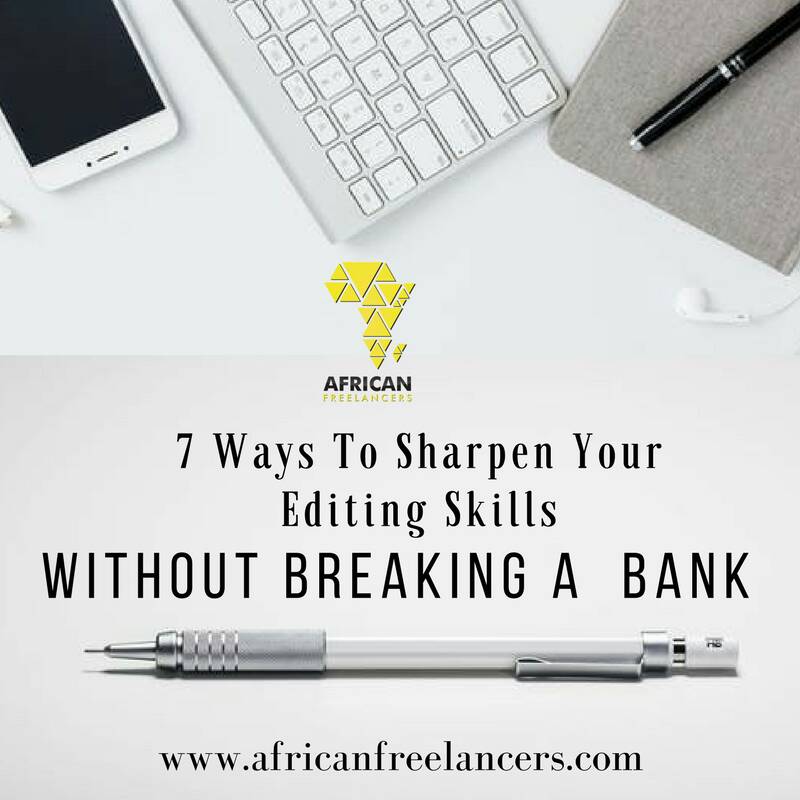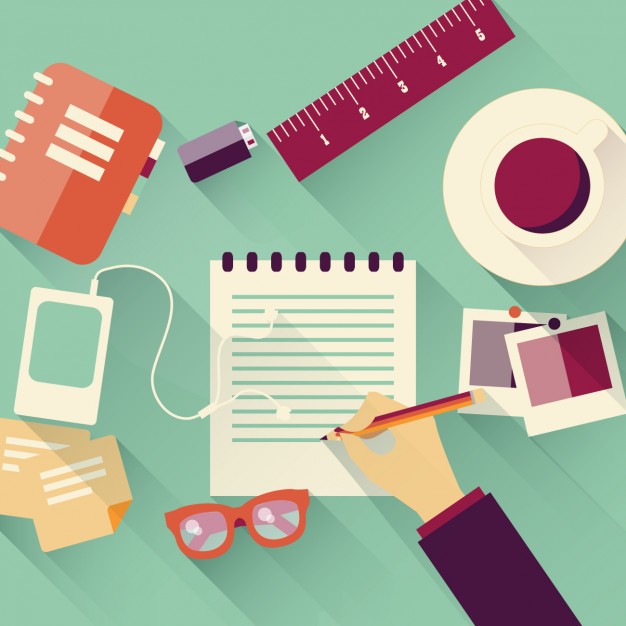To be sincere, I’d rather write up an entire lengthy article or book than edit. Editing stresses me, as well as proofreading. I like to get away from work that I’ve done as fast as possible and I’m guilty of not re-reading because it makes me feel like deleting the entire article. Stephen King said it right “To write is human, to edit is divine.”
Although those who edit with ease aren’t likely to have fallen down from the skies, there’s no doubt that editing is one of the most enviable skill sets any writer can have.
Because editing has proved to be pretty challenging for me and I like to be good at what I do, I had to decide between taking less (or no) editing jobs, and learning how to become better at it. Which option did you think I went for? Of course, to become better at editing. This was what propelled me to take a step back and read a book on editing. The lessons I learnt are what I’ll be sharing in this article.
For people suffering from this editor’s issues, here are a few lessons I gleaned from the book, as well as have applied in my own writing cum editing.
1. Change the font in which the document was presented in, as well as the entire look of the text- line spacing and all of that.
Have you ever had to edit a document and you just couldn’t get into the flow of it, or have you had to edit your own work and then gotten stuck for some reason? Good news! This can be alleviated by changing the way the document is presented. All you might have to do is change the font, or the line spacing or a lot more.
This has been proven to trick the brain into believing that you’re dealing with a different document. I have always done this as the first step before I began to edit a piece of document, without even knowing why. It just felt like the first step. Now, I know why!
2. Edit in blocks of time
If you are experienced at editing, you might find that when you begin to edit, the ‘ginger’ is there. Like you are very careful about picking out the mistakes, restructuring the sentences and spicing up the flow of the text. However, as time goes by, you begin to slip up. The beginning of the text looks beautifully edited but what about the middle part and the end? It’s poorly edited. I’ve found myself in this situation a couple of times, and so I can readily attest to it being the truth. What’s the way out? Edit in blocks of time! This way, you don’t get tired while editing and end up with a poorly done job.
3. Each paragraph needs to have a clear topic
Things to note about editing include paragraph structure. It is easy for writers to ramble on and on about something that seems unclear to the reader but as an editor, it is one of your roles to stand back and assess the writing for clarity. Each paragraph must be showing us something, otherwise it shouldn’t be there or it should be refurbished.
4. How Critical are You?
Often times, the most critical of writers make very good editors. By critical, I don’t mean tearing the work of someone else down. It just means you are quick to question why a sentence doesn’t resonate with you and if need be, you’ll spend a couple of minutes or an hour on a single paragraph. You need to become a stickler for perfection as an editor. Questions on your lips must include “Is the writing style passive?” “Is the author telling us things instead of weaving pictures of events in our minds as we read along” “Are there a lot of sentence fillers in this writing” and so on. Editing can be tasking, I must say; but you must understand your role here- it goes beyond checking for grammar and spelling, you are required to beat the work into a state of perfection. Remember to be critical. You aren’t a fan of the writer, you are the editor! Of course, when notifying the writer about things you didn’t feel satisfied with in the writing, you must do so with respect and empathy (this should be easier if you are a writer yourself, there’s nothing as demoralizing as getting your brain child torn down by someone else).
5. Proofreading is of key importance
The final part of the editing process is proofreading. This has to do with going over the work again for any grammatical errors or slipups. While apps like Grammarly would help in detecting spelling errors, some words might not come up as errors. If for instance, you type ‘your’ instead of ‘you’re’, it might be missed. A tip for efficient proofreading is to take a break from editing and then come back to proofread (Remember, edit in blocks of time). If you’re hard pressed for time, you can take about 5-10 minutes away from the work; staying away from the work for a while helps you see areas you missed more clearly.
6. Be ready to put in immense concentration
Editing is quite tacky because it takes a lot of time, effort and dedication and you can’t just go along with your own flow; you must get into the author’s flow and make additions, yet be able to step back from the text to make corrections. However, the good news is that you can get better at editing.
7. You’re gonna have to work!
Frankly, I think editors have their work cut out for them. Irrespective of whether you find it easy to edit or like me, it takes quite a lot of patience, dedication and rolling of eyes before you get the work done; editing is a skill that if an excellent writer has, would make writing richer and better projected in the eyes of readers. This is especially so because your reputation as a good writer before your audience could be one or more editing(s) away, if you are editing your own work. While editing the work of others, it brings great joy to know that the clarity of a written piece is improved because of your polished editing skills.







2 comments
Enlightening and educative…. Thanks for this post.
Thank you!
Comments are closed.